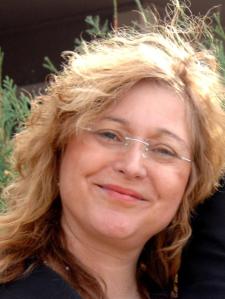
Margret F. answered • 10/17/16
German lessons by native German


Margret F.
ja, beide Satzstellungen sind moeglich und correct09/23/19
Olivia B.
asked • 08/31/16
Margret F. answered • 10/17/16
German lessons by native German


Margret F.
ja, beide Satzstellungen sind moeglich und correct09/23/19
Wolfgang S. answered • 07/31/24
MA in German, PhD in Education with 10+ Teaching Experience
the instructions say: "Bilden Sie die Sätze um, aber ohne das Akkusativobjekt an den Anfang des Satzes zu stellen."
I'm stuck on a few sentences because I am bad at doing this in English and German.
5. Dort bestellten sie Kaffee und verschiedene Kuchen.
6. Nach dem Kaffee hat Melanie einen Kurs an der Uni erwähnt (mentioned).
7. Besonders diese Vorlesung wollte sie ihrer Freundin beschreiben.
I cannot figure out these three; please help me order the sentences correctly.
Solution of the word order problem:
Sentence 5 – Sie bestellten dort Kaffee und verschiedene Kuchen.
Sentence 6 – Melanie hat nach dem Kaffee einen Kurs an der Uni erwähnt.
Or – Melanie hat einen Kurs an der Uni nach dem Kaffee erwähnt.
Sentence 7 – Sie wollte ihrer Freundin besonders diese Vorlesung beschreiben.
Or – Sie wollte besonders diese Vorlesung ihrer Freundin beschreiben.
The options "or“ indicate a change in the higher importance of the part of speech following the subject and the auxiliary.

Ruediger T. answered • 10/18/21
Language expert - German, English, French - 30 years experience
Since it is never a good idea to simply give away the complete answer, here is the two things you need to do in each sentence in order to ace this exercise on your own and learn something along the way:
First you should determine the accusative object as you are not supposed to move it. Then you should try to identify which of the remaining sentence parts are typically flexible in German.
Hint: In all three sentences the accustive object is the equivalent of an English direct object and therefore fairly easy to spot. And, with the object excluded, in all three sentences the only truly flexible portion left is an adverb or adverbial phrase. The task is actually quite easy but I'll give you the solution for the first sentence as an example:
Rearranged sentence: Dort bestellten Sie Kaffee und verschiedene Kuchen.
Note: You probably noticed that I also reversed the order of Sie and bestellten. Why? After moving dort this became necessary in order to fulfill the rule that in a German statement the finite verb must always be in second position. Since dort moved to position one we just had to scoot bestellten to position two in order to obey this fundamental rule of German word order (1).
(1) The "V2 word order" rule applies to all main clause statements but not to most subordinate clauses and not to questions and imperatives)
Get a free answer to a quick problem.
Most questions answered within 4 hours.
Choose an expert and meet online. No packages or subscriptions, pay only for the time you need.
Dagmar El. S.
09/19/19